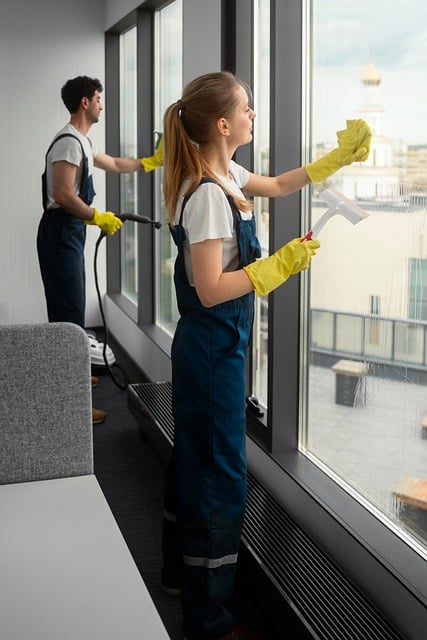Facility Cleaning Options
Maintaining clean and hygienic facilities is crucial for businesses, institutions, and public spaces. This article explores various aspects of facility cleaning, including the responsibilities involved, work environments, safety standards, and potential career paths in this essential field.

What are the main responsibilities in facility cleaning?
Facility cleaning encompasses a wide range of tasks aimed at maintaining cleanliness, hygiene, and safety in various environments. Common responsibilities include:
-
Sweeping, mopping, and vacuuming floors
-
Dusting and wiping surfaces
-
Sanitizing bathrooms and common areas
-
Emptying trash bins and replacing liners
-
Cleaning windows and mirrors
-
Restocking supplies such as paper towels and soap
-
Reporting maintenance issues to appropriate personnel
The specific duties may vary depending on the type of facility, such as offices, schools, hospitals, or industrial spaces. Cleaners often work in teams and may rotate tasks to ensure comprehensive coverage of all areas.
What are typical work environments and schedules for facility cleaners?
Facility cleaning jobs can be found in diverse settings, each with its own unique requirements and challenges. Some common work environments include:
-
Corporate offices and business parks
-
Educational institutions (schools, colleges, universities)
-
Healthcare facilities (hospitals, clinics, nursing homes)
-
Retail spaces and shopping centers
-
Government buildings and public spaces
-
Industrial facilities and warehouses
Work schedules in facility cleaning can vary significantly. Many cleaning operations occur outside of regular business hours to minimize disruption. This may include early morning, evening, or overnight shifts. Some facilities require 24/7 cleaning coverage, which can lead to rotating schedules or permanent night shifts. Part-time and full-time positions are often available, providing flexibility for workers with different scheduling needs.
What training and safety standards are important in facility cleaning?
Proper training and adherence to safety standards are essential in facility cleaning to ensure the well-being of both cleaners and facility occupants. Important aspects include:
-
Proper use of cleaning chemicals and equipment
-
Understanding Material Safety Data Sheets (MSDS)
-
Ergonomic practices to prevent injuries
-
Bloodborne pathogen awareness and handling procedures
-
Proper waste disposal techniques
-
Emergency response procedures
-
Personal protective equipment (PPE) usage
Many employers provide on-the-job training, while some may require or offer certifications from organizations such as the International Sanitary Supply Association (ISSA) or the Building Service Contractors Association International (BSCAI). These certifications can enhance a cleaner’s knowledge, skills, and career prospects.
What career development opportunities exist in facility cleaning?
The facility cleaning industry offers various pathways for career growth and development. Potential career progression might include:
-
Entry-level cleaner
-
Team leader or supervisor
-
Area manager
-
Operations manager
-
Facilities manager
Advanced positions often require additional skills in areas such as team management, budgeting, and customer relations. Some professionals in the field may also specialize in specific types of cleaning, such as healthcare facility sanitation or industrial cleaning.
Continuing education and professional development opportunities are available through industry associations, vocational schools, and some employers. These can include courses on advanced cleaning techniques, sustainability practices, and management skills.
How does the facility cleaning industry promote inclusivity?
The facility cleaning industry has made strides in promoting inclusivity and diversity in its workforce. Some key aspects include:
-
Offering opportunities for entry-level positions with on-the-job training
-
Providing language support for non-native English speakers
-
Implementing flexible scheduling options to accommodate various personal circumstances
-
Promoting from within, allowing employees to advance regardless of background
-
Offering equal opportunities for leadership roles to individuals from diverse backgrounds
Many companies in the industry are also focusing on creating inclusive work environments that value and respect employees from all walks of life. This commitment to inclusivity not only benefits workers but also contributes to a more dynamic and effective workforce.
Conclusion
Facility cleaning is a vital service that offers a range of career options and work environments. From entry-level positions to management roles, the industry provides opportunities for individuals with diverse skills and backgrounds. As the importance of cleanliness and sanitation continues to be emphasized in various sectors, the demand for skilled and dedicated facility cleaning professionals is likely to remain strong.




